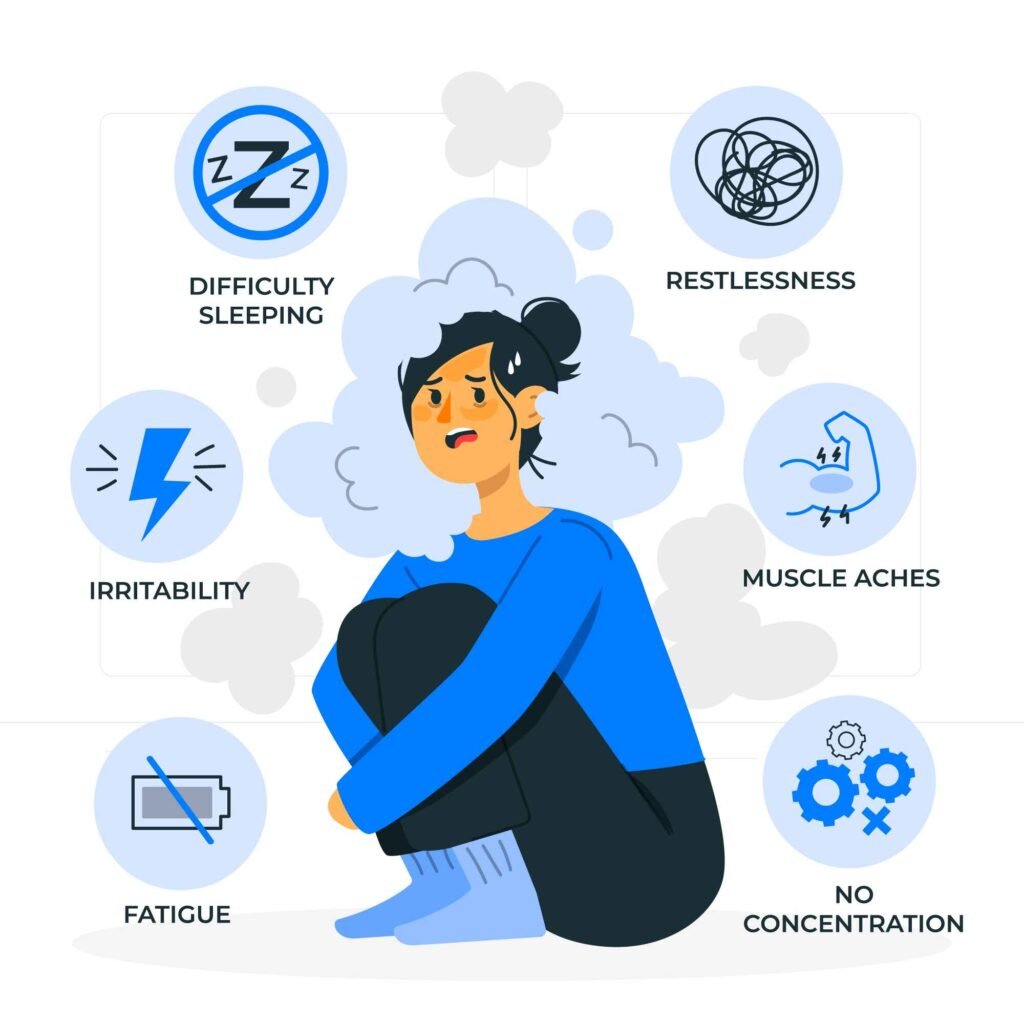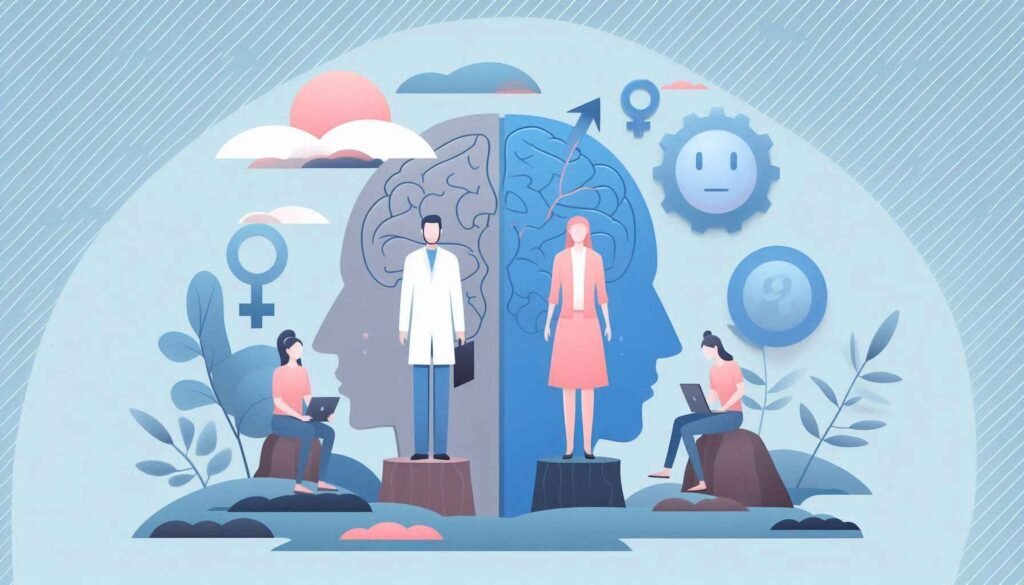
Benefits of Intensive Outpatient Programs (IOPs)
Introduction to Intensive Outpatient Programs (IOPs)
Intensive Outpatient Programs, or IOPs, are a lifeline for individuals navigating the challenges of mental health disorders, substance abuse, or other personal crises. These programs provide a structured yet flexible approach to recovery, allowing participants to maintain their daily responsibilities while receiving comprehensive care. Unlike inpatient treatments, IOPs empower individuals to continue working, studying, or caring for their families, offering a balanced path toward healing.
Why Choose IOPs Over Inpatient Care?
The decision to choose an Intensive Outpatient Program over inpatient treatment often hinges on the level of care required and personal circumstances. IOPs offer numerous advantages, including:
- Flexibility in Treatment Scheduling
One of the most significant benefits of IOPs is their adaptability. Participants can attend therapy sessions during evenings or mornings, ensuring minimal disruption to work, school, or family life. This flexibility removes barriers to accessing care and encourages consistent participation. - Cost-Effectiveness Without Compromising Quality
IOPs are generally more affordable than inpatient programs, making them accessible to a broader audience. Despite the lower cost, these programs often provide the same high-quality therapies and interventions as inpatient care, ensuring participants receive the support they need. - Seamless Integration Into Daily Life
Unlike inpatient care, which requires individuals to stay in a facility, IOPs allow participants to apply newly learned coping skills in real-world settings immediately. This hands-on approach accelerates the recovery process and strengthens resilience in day-to-day situations.
Key Benefits of IOPs for Mental Health
Mental health disorders, including depression, anxiety, and bipolar disorder, often require tailored and ongoing support. IOPs are specifically designed to address these needs through evidence-based therapies and collaborative care. Below are some of the primary advantages:
- Access to Multidisciplinary Support Teams
IOPs bring together psychologists, psychiatrists, social workers, and counselors, providing participants with a diverse range of expertise. This holistic care model ensures that every aspect of an individual’s mental health is addressed. - Customizable Treatment Plans
Every participant’s journey is unique, and IOPs prioritize personalization. Treatment plans are developed after thorough assessments, ensuring therapies align with individual goals and challenges. - Building a Supportive Community
Group therapy is a cornerstone of many IOPs, fostering a sense of community among participants. Sharing experiences with others facing similar struggles can reduce feelings of isolation, promote empathy, and inspire hope. - Skill Development for Long-Term Success
IOPs emphasize skill-building, teaching participants strategies to manage stress, regulate emotions, and maintain healthy relationships. These skills are not only vital for recovery but also for sustaining mental wellness over time.
IOPs and Substance Abuse Recovery
For individuals battling substance abuse, Intensive Outpatient Programs provide a structured and supportive environment to regain control over their lives. The benefits of IOPs in this area include:
- Relapse Prevention Through Structured Support
IOPs equip participants with tools to identify and manage triggers, reducing the risk of relapse. Regular therapy sessions and check-ins ensure ongoing accountability and motivation. - Focus on Underlying Issues
Substance abuse often stems from unresolved trauma, mental health disorders, or other challenges. IOPs delve deep into these root causes, addressing them comprehensively to promote lasting recovery. - Family Involvement in Healing
Many IOPs incorporate family therapy, recognizing the critical role loved ones play in the recovery process. Educating families about addiction and recovery fosters understanding and creates a stronger support network for the participant.
Core Therapies Offered in IOPs
Intensive Outpatient Programs (IOPs) rely on a mix of evidence-based therapies to help individuals overcome mental health challenges and substance abuse issues. These therapies target both immediate symptoms and their root causes, providing a well-rounded approach to recovery. Some of the most effective therapies in IOPs include:
- Cognitive Behavioral Therapy (CBT)
CBT helps participants recognize and change negative thought patterns. By addressing these patterns, they can develop healthier ways of responding to stressors. As a result, conditions like anxiety, depression, and substance cravings are better managed. - Dialectical Behavior Therapy (DBT)
DBT focuses on four essential skills: mindfulness, distress tolerance, emotional regulation, and interpersonal effectiveness. These skills are especially useful for individuals dealing with intense emotions or self-harm tendencies. In an IOP setting, DBT teaches participants how to manage real-life challenges more effectively. - Motivational Interviewing (MI)
MI is designed to boost participants’ motivation to change. This therapy is particularly beneficial for those struggling with substance abuse. It helps individuals resolve internal conflicts and strengthens their commitment to recovery. - Group Therapy
Group sessions foster a sense of community. Participants share their struggles, learn from each other’s experiences, and receive valuable feedback. This environment reduces feelings of isolation and builds mutual support. - Family Therapy
Many IOPs include family therapy sessions. These sessions improve communication within the family, resolve conflicts, and educate loved ones about mental health or addiction. As a result, participants receive more consistent support at home. - Holistic Therapies
Some IOPs incorporate holistic therapies like yoga, meditation, and art therapy. These practices complement traditional therapies by reducing stress and promoting emotional balance. Participants learn to connect with themselves and develop healthy coping mechanisms.
Balancing Flexibility and Accountability
One of the main advantages of IOPs is their ability to balance flexibility with accountability. This combination allows individuals to receive structured support while maintaining their daily responsibilities. Here’s how IOPs achieve this balance:
- Flexible Scheduling
IOPs typically offer morning, evening, and weekend sessions. Therefore, participants can attend therapy without disrupting work, school, or family obligations. This flexibility makes it easier for individuals to commit to their recovery journey. - Consistent Monitoring and Check-Ins
Despite the flexibility, IOPs maintain accountability through regular check-ins and progress evaluations. Participants are expected to attend sessions consistently, and their progress is closely tracked. This approach helps keep them on course toward their recovery goals. - Real-Life Application of Skills
Because participants do not stay in a facility, they can apply new coping skills in real-world situations right away. For instance, they may practice stress management techniques at work or use communication strategies at home. This immediate application reinforces learning and builds resilience. - Goal-Oriented Plans
Each participant works with therapists to create personalized goals. These goals are reviewed regularly to track progress and make adjustments if necessary. By focusing on clear, achievable milestones, participants stay motivated and engaged in their recovery.
Long-Term Advantages of IOPs
The benefits of IOPs extend beyond the initial treatment period. These programs are designed to set participants up for long-term success and well-being. Some key long-term advantages include:
- Improved Mental Health Management
The skills learned in IOPs provide a foundation for ongoing mental health care. Participants are better equipped to manage anxiety, depression, and other mental health conditions. Consequently, they are less likely to experience severe relapses. - Effective Coping Strategies
IOPs teach practical coping mechanisms, such as mindfulness, journaling, and deep breathing. These strategies help individuals handle stress and emotional challenges in healthier ways. As a result, they are more resilient in the face of adversity. - Stronger Support Networks
During IOPs, participants often form lasting connections with peers and therapists. These support networks continue to provide encouragement and understanding after the program ends. Having a reliable support system is essential for maintaining recovery. - Lower Risk of Relapse
For those recovering from substance abuse, IOPs significantly reduce the risk of relapse. Participants learn to identify triggers, manage cravings, and seek help when needed. Follow-up sessions or support groups can further support their sobriety journey. - Increased Self-Awareness
Through therapy and self-reflection, participants develop a deeper understanding of themselves. This self-awareness helps them make better decisions, set healthy boundaries, and pursue personal growth. - Healthier Lifestyle Choices
IOPs often emphasize the importance of physical health, nutrition, and self-care. As a result, participants are more likely to adopt healthier habits, such as exercising regularly, eating well, and getting enough sleep.
Family and Community Support in IOPs
Family and community support play a crucial role in the success of Intensive Outpatient Programs. Recovery is more sustainable when individuals are surrounded by understanding and supportive people. Here’s how IOPs encourage this involvement:
- Family Therapy Sessions
Family therapy helps loved ones understand the challenges participants face. It also improves communication and resolves conflicts, creating a more supportive home environment. - Educational Resources
Many IOPs provide educational sessions for families. These resources help families learn about mental health conditions and recovery strategies. Informed families are better equipped to offer meaningful support. - Peer Support Groups
Group therapy creates a sense of community among participants. Sharing experiences with others who understand their struggles reduces isolation and fosters mutual support. - Community Referrals
IOPs often connect participants with local resources, such as support groups or vocational programs. These connections help individuals rebuild their lives and reintegrate into their communities.
How IOPs Bridge the Gap Between Inpatient and Outpatient Care
Intensive Outpatient Programs (IOPs) are designed to fill a critical gap in the continuum of care. They strike a balance between the structured environment of inpatient care and the flexibility of standard outpatient treatment. This middle ground is especially beneficial for those who need more support than traditional outpatient therapy offers but do not require 24/7 supervision. Here’s how IOPs serve as a bridge:
- Smooth Transition from Inpatient Care
For individuals leaving residential treatment, IOPs provide a structured yet flexible step-down approach. This helps ease the transition back to daily life while maintaining essential therapeutic support, reducing the risk of setbacks or relapses. - Preventing the Need for Inpatient Treatment
By addressing issues early and providing intensive care, IOPs can prevent conditions from worsening to the point where inpatient treatment becomes necessary. This proactive approach helps individuals manage their mental health or addiction more effectively. - Personalized Intensity of Care
IOPs can be tailored to match the intensity of care needed by each individual. Participants might start with multiple sessions per week and gradually reduce frequency as they make progress. This flexibility allows for a gradual reduction in support without feeling overwhelming. - Holistic and Comprehensive Care
Combining group therapy, individual counseling, family support, and holistic practices, IOPs offer a comprehensive treatment plan. This holistic approach ensures that emotional, mental, and physical aspects of recovery are addressed simultaneously.
Who Can Benefit Most from IOPs?
Intensive Outpatient Programs are suitable for a wide range of individuals dealing with mental health issues, substance abuse, or co-occurring disorders. Here are some groups that benefit significantly from IOPs:
- Individuals with Mild to Moderate Mental Health Disorders
Those experiencing anxiety, depression, PTSD, or mood disorders who don’t require hospitalization can benefit from the structured support of an IOP. The consistent therapy sessions help them manage symptoms while maintaining their regular lives. - People Recovering from Substance Abuse
IOPs provide critical support for individuals who are in the early stages of recovery from drug or alcohol addiction. These programs help them develop coping strategies, manage cravings, and rebuild their lives without requiring full-time residential care. - Those Experiencing Relapse or Setbacks
If someone in recovery experiences a relapse or setback, an IOP can provide immediate support to get them back on track. The intensive nature of the program offers the structure and accountability needed to regain stability. - Teens and Young Adults
Adolescents and young adults facing mental health challenges or substance abuse can benefit from IOPs designed specifically for their age group. These programs address the unique pressures and developmental stages of younger participants. - Individuals with Co-Occurring Disorders
For those dealing with both mental health disorders and substance abuse, IOPs offer integrated treatment plans that address both issues simultaneously. This dual-focus approach increases the likelihood of successful recovery.
The Importance of Family and Community Involvement in IOPs
Family and community support play a crucial role in the success of Intensive Outpatient Programs. Recovery and mental health management are more sustainable when participants have a strong support system. Here’s how IOPs foster family and community involvement:
- Family Therapy Sessions
Many IOPs include family therapy as a core component. These sessions help families understand the challenges their loved one faces, improve communication, and create a supportive home environment. Family therapy also addresses any underlying issues that may contribute to mental health struggles or substance abuse. - Education and Resources for Families
IOPs often provide educational sessions for families, covering topics like addiction, mental health disorders, and recovery strategies. Educated families are better equipped to provide meaningful support and recognize signs of relapse or distress. - Peer Support Groups
Being part of a community of peers facing similar challenges helps participants feel understood and less alone. Group therapy and peer support sessions foster camaraderie and offer practical advice from those who are on similar paths to recovery. - Community Resources and Referrals
Many IOPs connect participants with community resources such as support groups, vocational training, and educational programs. These connections help individuals rebuild their lives and integrate into society with confidence.
The Role of Self-Care in IOP Success
Self-care is a fundamental aspect of recovery and mental health management in Intensive Outpatient Programs. Participants learn the importance of prioritizing their well-being through various self-care practices. Here are some self-care strategies emphasized in IOPs:
- Mindfulness and Meditation
Practicing mindfulness helps individuals stay present and manage their thoughts and emotions effectively. Meditation sessions in IOPs teach participants to reduce stress and anxiety, promoting a sense of calm and balance. - Exercise and Physical Activity
Regular physical activity is encouraged in IOPs because of its proven benefits for mental health. Exercise helps release endorphins, reduce anxiety, and improve overall mood. Participants are guided on how to incorporate physical activity into their daily routines. - Healthy Nutrition
Proper nutrition plays a significant role in mental and physical health. IOPs often provide guidance on healthy eating habits, helping participants make better food choices to support their recovery and overall wellness. - Sleep Hygiene
Good sleep hygiene is essential for mental clarity and emotional stability. IOPs offer strategies to improve sleep quality, such as establishing regular sleep routines, reducing screen time before bed, and creating a calming bedtime environment. - Setting Boundaries
Learning to set healthy boundaries is crucial for protecting one’s mental health. IOPs teach participants how to say no, prioritize their needs, and avoid burnout by managing their time and energy effectively.
The Lifelong Impact of IOPs
Intensive Outpatient Programs are not just about short-term recovery; they are designed to create lasting change. The skills, strategies, and support systems developed during an IOP stay with participants for life. Here’s how IOPs create a lasting impact:
- Empowerment and Independence
Participants leave IOPs with a stronger sense of control over their lives. They are equipped with the tools and confidence to handle challenges, make healthy choices, and pursue their goals independently. - Sustainable Coping Skills
The coping mechanisms learned in IOPs become lifelong tools for managing stress, anxiety, and cravings. These skills help individuals navigate difficult situations without reverting to harmful behaviors. - Improved Quality of Life
By addressing mental health or substance abuse challenges, IOPs help individuals rebuild relationships, enhance their careers, and find joy in everyday activities. This improved quality of life contributes to long-term happiness and fulfillment. - Ongoing Growth and Development
The journey doesn’t end after an IOP. Participants are encouraged to continue personal growth through therapy, support groups, and self-care practices. This commitment to ongoing development ensures a stable and fulfilling future.



